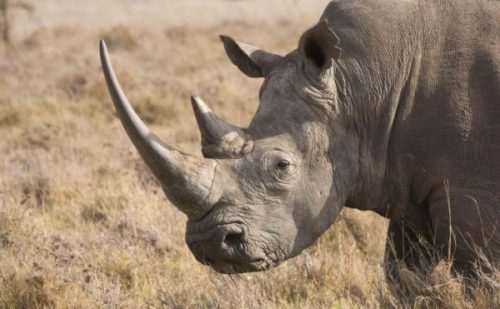The Wildlife Conservation Network has published its latest article covering rhino poaching in Africa, which is aimed primarily at conservationists. The article is available for viewing in full at http://wildnet.org/updates/rhino-reality.

San Fransisco, USA - May 3, 2016 /PressCable/ —
The Wildlife Conservation Network has published a new article entitled Rhino Reality, which sheds light on the most important aspects of rhino poaching in Africa for conservationists. Those who are passionate about anti-poaching or concerned about the conservation of rhinos and other interested individuals can view the full article at http://wildnet.org/updates/rhino-reality.
The article includes several interesting pieces of information, and one in particular is that in the last eight years, there are nearly 6,000 rhinos poached in Africa with nearly 1,200 last year alone, but still, poaching has not been controlled. This should be of particular interest to conservationists because they need to develop and execute effective strategies to counter trafficking and poaching done by international crime networks.
An important piece of information the article tries to convey is that trading of an item like a rhino horn is a complicated one, with many aspects coming into play which includes difficulties in gauging demand size from the black market which could explode easily with a legal trade, and governance issues in trying to implement a legal trade that cannot be abused and used to conceal illegal horn trade The best example of this is perhaps found in the following extract:
‘When tampering or dealing with the rhino horn market, for example making fake horns like an industrious team in the USA tried with 3D printing, is that the end consumer is often not considered properly and what the knock-on effect of an attempt like this could be. In a case of a fake horn, albeit genetically engineered to be similar, we would increase the market size through the promotion of a legal ‘rhino horn’, while at the same time running the risk of increasing the status of real, wild rhino horn. The criminal syndicates might claim to be able to verify horn status with the result being an increase in revenue available for poaching of wild rhino and higher losses of rhino in the wild to feed this growing market.’
The author Simon Morgan, Trustee from Wildlife ACT at Wildlife Conservation Network, said:
“Humanity can once again change the status quo and quash beliefs around the unsustainable use of animal products either by their own or neighboring societies – especially if it puts the future of any species at risk. It is only when we manage to generate a global consciousness about the plight of our wildlife will this be possible.”
Regular readers of Wildlife Conservation Network will notice the article takes a familiar tone, which has been described as ‘fearless’ and ‘hard-hitting’.
The Wildlife Conservation Network now welcomes comments and questions from readers, in relation to the article, as they are intent on getting a real idea of what real people think on the matter. The reason is simply because it will generate a greater understanding of the subject as a while for everyone involved.
Anyone who has a specific question about a past, present, or future article can contact Wildlife Conservation Network via their website at http://wildnet.org
The complete article is available to view in full at http://wildnet.org/updates/rhino-reality.
For more information about us, please visit http://wildnet.org
Contact Info:
Name: Stephanie Carnow
Organization: Wildlife Conservation Network
Address: 209 Mississippi Street San Francisco, CA 94107 USA
Release ID: 113377